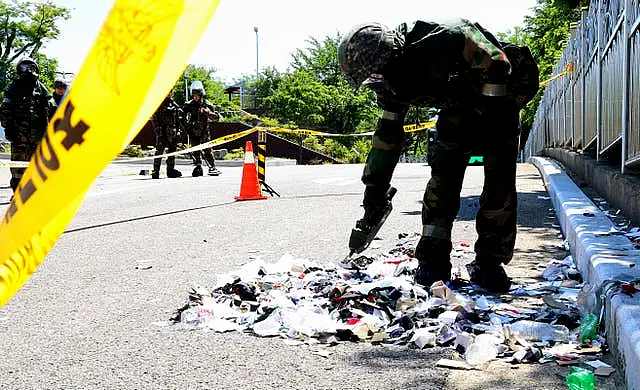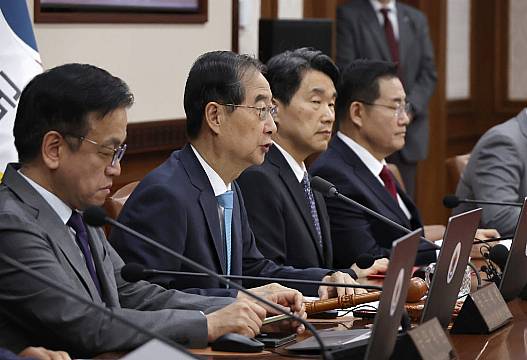South Korea’s government has approved the suspension of a contentious military agreement with North Korea, a step that would allow it to take tougher responses to North Korean provocations.
The development came as animosities between the rival neighbours rose sharply after North Korea launched trash-carrying balloons across the border in reaction to previous South Korean civilian leafletting campaigns.
South Korea’s Cabinet Council passed a proposal on Tuesday aimed at suspending the 2018 inter-Korean agreement on lowering down frontline military tensions.
The proposal will formally take effect when it is signed by President Yoon Suk Yeol, which is likely to happen later on Tuesday, according to government officials.

During the cabinet meeting, Prime Minister Han Duck-soo said the government assessed the 2018 deal has weakened South Korean military readiness at a time when repeated North Korean provocations pose real threats to the South Korean public.
Mr Han cited North Korea’s balloon campaign, tests of nuclear-capable weapons targeting South Korea and alleged jamming of GPS navigation signals in the South.
The military agreement — reached during a short-lived era of reconciliation between the Koreas — requires the two countries to cease all hostile acts against each other at their border areas such as live firing drills, aerial drills and psychological warfare.
The accord has invited withering conservative criticism in South Korea that mutual reductions of conventional military strength would end up weakening South’s war readiness while North Korea’s nuclear capability remain intact.
In the past week, North Korea used balloons to drop manure, cigarette butts, scraps of cloth and waste paper on South Korea, who vowed unspecified “unbearable” retaliatory steps. On Sunday, North Korea said it would halt its balloon campaign.
South Korean officials said the suspension of the 2018 deal would allow it to stage frontline military drills but didn’t publicly elaborate on other steps.
Observers say South Korea was considering restarting frontline propaganda loudspeaker broadcasts, a Cold War-style psychological campaign that experts say has previously stung in rigidly controlled North Korea as most of its 26 million people are not allowed official accesses to foreign news.
The 2018 deal has already been in limbo after the two Koreas took steps in breach of it amid tensions over North Korea’s spy satellite launch last November.







